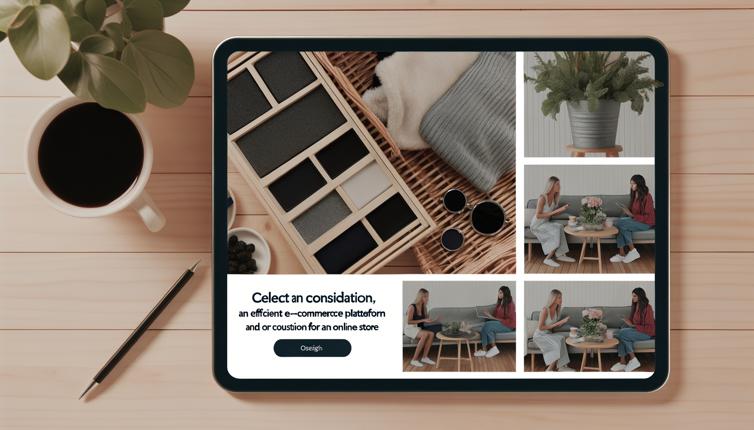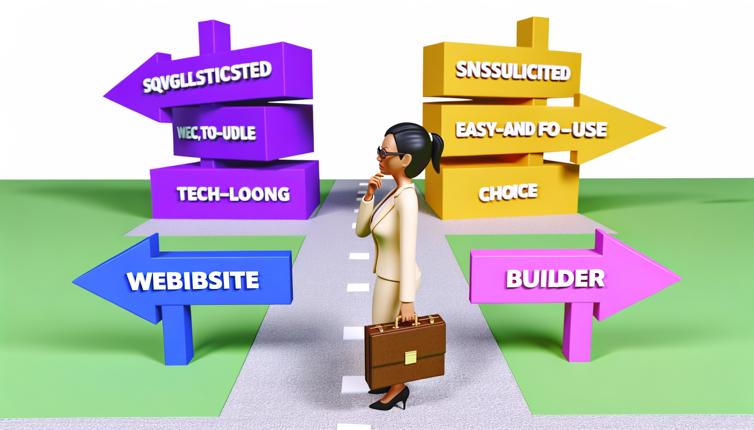1. Ease of Use
One of the first things to consider when choosing a CMS is its ease of use. You want a system that is intuitive and user-friendly, allowing you to easily create and update content without the need for technical expertise. Look for a CMS with a simple and intuitive interface, drag-and-drop functionality, and easy-to-use editing tools.,Additionally, consider the CMS's learning curve. Is it easy to learn and navigate, or does it require extensive training? Choose a CMS that matches your skill level and provides the necessary support and resources for learning.
2. Flexibility and Customization
Every website has unique requirements, so it's essential to choose a CMS that offers flexibility and customization options. Consider the design and layout options available, as well as the ability to add and modify features and functionalities.,Look for a CMS that allows you to easily customize the appearance, layout, and functionality of your website. It should have a variety of themes, templates, and plugins that enable you to create a website tailored to your specific needs.,Additionally, consider the scalability of the CMS. Will it be able to accommodate your future growth and evolving needs? Choose a CMS that can easily adapt to changes and provides scalability options.
3. SEO-Friendly Features
Having a website that is optimized for search engines is crucial for attracting organic traffic. When choosing a CMS, consider its SEO-friendly features and capabilities.,Look for a CMS that provides built-in SEO tools, such as customizable URLs, meta tags, and sitemaps. It should also have options for optimizing page speed, mobile responsiveness, and structured data.,Additionally, consider the CMS's integration with external SEO tools and plugins. Does it support popular SEO plugins like Yoast SEO or All in One SEO Pack? Choose a CMS that allows you to easily implement and manage your SEO strategies.
4. Security
Website security is a top priority for any business or organization. When choosing a CMS, consider its security features and protocols.,Look for a CMS that provides regular security updates and patches to protect against vulnerabilities and cyber threats. It should also offer features like user authentication, permission-based access control, and SSL certificate integration.,Additionally, consider the reputation and track record of the CMS provider. Do they prioritize security and have a history of addressing security issues promptly? Choose a CMS that prioritizes the security of your website and sensitive data.
5. Support and Community
Lastly, consider the support and community surrounding the CMS. A reliable support system and an active community can make a significant difference in your experience with the CMS.,Look for a CMS that provides comprehensive documentation, tutorials, and resources for troubleshooting and learning. It should also offer customer support channels, such as email, live chat, or phone support, to assist you in case of any issues or questions.,Additionally, consider the size and activity of the CMS's community. Is there an active user forum or community-driven support? A vibrant community can provide valuable insights, tips, and plugins to enhance your experience with the CMS.,By considering these five factors - ease of use, flexibility and customization, SEO-friendly features, security, and support and community - you can make an informed decision when choosing a website content management system for your website.
Conclusion
Choosing the right website content management system is crucial for the success of your website. By considering factors such as ease of use, flexibility, SEO-friendly features, security, and support, you can find a CMS that meets your specific needs. Take your time to research and evaluate different options, and consider seeking expert advice if needed. Remember, the right CMS can greatly simplify the process of creating, managing, and updating your website.









